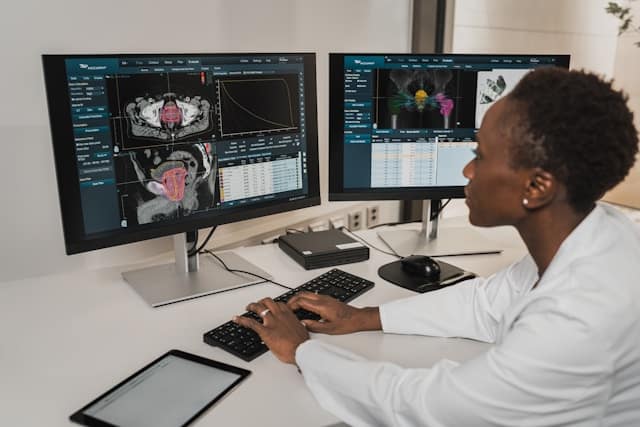What Are the Prospects for British Biotech SMEs in Personalized Medicine Innovations?

As the world of medicine continues to evolve, the British biotech sector finds itself in a pivotal position. With a predicted global market worth over a whopping $3 trillion by 2025, personalized medicine has become the new frontier. Small and Medium Enterprises (SMEs) in the UK are driving innovations in this market, changing the landscape of healthcare and creating astounding business opportunities. Today, we delve into the prospects for British Biotech SMEs in the realm of personalized medicine innovations.
The Growth of the Personalized Medicine Market
Personalized medicine, also known as precision medicine, is a modern approach to healthcare. It aims to tailor medical treatment to each individual’s genetic makeup and lifestyle. This innovative approach has the potential to drastically improve patient care and outcomes.
A voir aussi : How Should UK Retailers Adjust Pricing Strategies to Combat Digital Market Disruption?
As the global market for personalized medicine expands, British SMEs are seizing the opportunity to innovate and achieve growth. The rise of genomics – the study of an individual’s genes – and other biotechnologies, is paving the way for these companies to develop products that can radically alter patient diagnosis, treatment, and disease prevention.
According to Grand View Research, the global personalized medicine market is expected to reach $3.18 trillion by 2025. This exponential market growth presents a significant opportunity for British Biotech SMEs to make their mark on a global scale.
Lire également : What Are the Techniques for Enhancing Customer Retention in UK Online Fitness Programs?
Innovation and Investment in British Biotech
Investment in the British biotech sector is booming. In 2023, the UK attracted over £2.4 billion in venture capital funding for life sciences. This investment is fuelling development and innovation in personalized medicine.
The government is also actively supporting the growth of the sector. In 2021, the UK government launched the Life Sciences 2021 Vision, a strategy aimed to cement the UK as a global leader in life sciences. This vision includes a focus on genomics and personalized medicine, areas where British SMEs are increasingly excelling.
These companies are not just developing innovative healthcare solutions, they are potentially altering the course of medicine itself. From products that allow doctors to tailor treatments based on a patient’s genetic makeup to technology that can predict the likelihood of developing certain diseases, British biotech SMEs are at the forefront of personalized medicine.
The Impact of Technology on the Biotech Sector
Digital technology is playing a pivotal role in the advancement of personalized medicine. Innovations in cloud computing, artificial intelligence, and machine learning are enabling biotech companies to process and interpret vast amounts of genetic data. This capability is central to the development of personalized medicine.
British biotech SMEs are leveraging these technologies to create solutions that promise to transform healthcare. For example, companies like Congenica and BenevolentAI are using AI to accelerate the diagnosis of rare diseases and the discovery of new medicines, respectively.
The integration of digital technology and biotech not only accelerates medical research and development, it also opens up new avenues for personalized healthcare services. Mobile health apps, telemedicine, and wearable devices are just a few ways that technology is making personalized healthcare more accessible.
The Future of British Biotech in Personalized Medicine
The future for British biotech SMEs in personalized medicine looks promising. The combination of a growing global market, strong investment, government support, and technological advancements paints an optimistic picture.
However, it’s important to remember that the path to success in this sector is not without challenges. High development costs, regulatory hurdles, and the need for robust data security measures are among the factors that these companies will have to navigate.
Nonetheless, British biotech SMEs are showing resilience and adaptability in the face of these challenges. They are harnessing the power of technology and innovation to drive their growth, and in doing so, they are playing a crucial role in shaping the future of personalized medicine.
Personalized Medicine: A Revolution in Healthcare
In conclusion, personalized medicine is revolutionising the way we approach healthcare. It holds the promise of treatments that are tailored to individual genetic makeups, offering the potential for more effective and efficient healthcare.
British biotech SMEs are at the forefront of this revolution. Through innovation and the application of advanced technology, these companies are developing solutions that could transform the global healthcare sector.
As the personalized medicine market continues to grow, the opportunities for these UK-based companies are vast. With continued investment and government support, coupled with the resilience and innovation of these SMEs, the prospects for British biotech in personalized medicine are exciting indeed.
Navigating the Regulatory Landscape
In the rapidly evolving field of personalized medicine, one of the key challenges for British biotech SMEs is navigating the complex regulatory framework. As these companies continue to develop innovative medical devices and therapies, they must also work within the boundaries of stringent regulations designed to ensure patient safety.
The regulatory landscape for personalized medicine is particularly complex. This is due to the nature of the science involved, ranging from genetic testing to the creation of tailored therapies. The regulatory environment involves a multitude of organisations, from national bodies such as the Medicines and Healthcare products Regulatory Agency (MHRA) in the UK, to international bodies such as the European Medicines Agency (EMA) and the Food and Drug Administration (FDA) in North America.
While these regulations can pose a challenge, they also provide an assurance of the safety and efficacy of the products developed by the biotech sector. It’s a double-edged sword: while compliance can be resource-intensive for SMEs, it also serves to build trust with consumers and healthcare providers.
The UK government has shown a willingness to support SMEs in this area. The Life Sciences 2021 Vision strategy includes a commitment to streamline regulatory pathways to accelerate the development and approval of innovative health technologies.
Despite these hurdles, British biotech SMEs have shown a commendable ability to navigate this complex regulatory environment. Their commitment to compliance, coupled with the support of government initiatives, is set to aid their continued success in the personalized medicine market.
Embracing the Power of Genomic Medicine
Genomic medicine, a field that uses genome information about an individual as part of their clinical care, is at the heart of personalized medicine. It has the potential to create a seismic shift in healthcare, enabling the development of highly tailored treatments based on an individual’s genetic make-up.
British biotech SMEs are at the vanguard of this revolution. By harnessing high tech tools to map and analyse the human genome, these companies are developing bespoke medical solutions that promise to transform patient care.
For instance, companies like Genomics England are using genomic medicine to pioneer research in rare diseases and cancer. The goal is to gain a deeper understanding of these diseases, which can lead to the development of personalized interventions, targeted therapies, and even potential cures.
Moreover, the emergence of direct-to-consumer genetic testing services, offered by companies like 23andMe, is increasing public awareness and access to genomic information. It’s a trend that’s driving growth in the personalized medicine market.
Innovation in genomic medicine is not without its challenges. Issues such as data security and privacy, ethical considerations, and the need for robust clinical validation are all important factors that need to be addressed. Nonetheless, British biotech SMEs are demonstrating their ability to overcome these hurdles and continue to drive forward the science of personalized medicine.
Concluding Thoughts: The Bright Horizon for British Biotech SMEs
In the face of exciting scientific advancements and a booming market, the prospects for British biotech SMEs in personalized medicine are undeniably bright. The combination of a robust life sciences sector, supportive regulatory framework, and the drive for innovation positions these companies at the forefront of a healthcare revolution.
There’s no denying the challenges that lie ahead – from the high costs of product development to navigating complex regulations and ensuring data security. However, these SMEs have consistently shown resilience and adaptability, proving that they’re more than capable of tackling these obstacles head-on.
As they continue to embrace the power of genomic medicine and other high-tech advancements, these companies are not just transforming the health technology landscape. They’re changing the way we approach healthcare, making it more personalized, effective and efficient.
The future of medicine is undeniably personalized, and British biotech SMEs are leading the way. With continued investment and support, there’s no limit to what they can achieve.
